1. Holding Your Breath When Passing a Cemetery

Many Americans grew up hearing that you should hold your breath when driving or walking past a cemetery, according to USC. The idea was that if you didn’t, spirits could enter your body, or you’d inhale the souls of the dead. Some versions of the superstition also said that failing to hold your breath would bring bad luck or an early death. While some still do it out of childhood habit, most people have let this eerie belief go.
This superstition likely comes from older traditions about the dead lingering among the living. The idea of spirits wandering graveyards was common in many cultures, making cemeteries places of potential danger. Over time, as death became less mysterious and more medicalized, people stopped fearing ghosts lurking in burial grounds. Today, cemeteries are more about history and remembrance than supernatural risks.
2. Dropping a Knife Means a Man is Coming

Back in the day, people believed that if you accidentally dropped a knife on the floor, it meant a man was on his way to visit, according to Koi Knives. If you dropped a fork, a woman was coming, and a spoon meant a child would arrive soon. Some households even took it seriously enough to start preparing for company when a utensil hit the ground. Today, most people just pick up their silverware and move on without expecting surprise guests.
This superstition likely stemmed from the idea that accidents were signs from the universe rather than random occurrences. Since visitors often showed up unannounced in early America, it wasn’t a huge leap to think a clattering utensil could predict them. Over time, as life became more structured and communication improved, the belief lost its grip. Now, you’re more likely to get a text before someone shows up than a warning from your fallen knife.
3. Birds in the House Bring Death
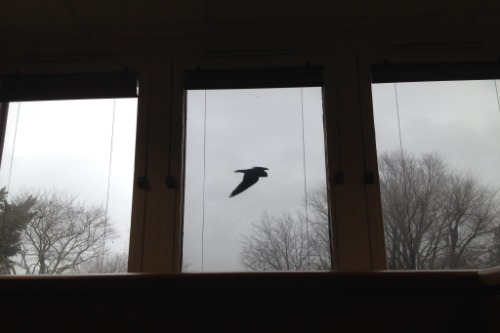
Once upon a time, having a bird fly into your house was considered a terrible omen, usually signaling an impending death, according to Bird Spot. Some people believed that even having bird decorations, like paintings or figurines, could bring bad luck. This belief was especially strong in the South and among older generations who saw birds as messengers between worlds. Nowadays, if a bird flies inside, most people just try to shoo it out without worrying about supernatural consequences.
The superstition likely came from old European folklore, where birds were often seen as harbingers of the afterlife. Since birds could easily enter homes through open windows or chimneys, their sudden appearance felt eerie. Over time, as people stopped seeing everyday events as omens, the fear faded. Now, a trapped bird is more of a nuisance than a reason to start making funeral arrangements.
4. Itchy Palms Predict Money

It used to be common knowledge that if your right palm itched, you were about to come into some money, but if your left palm itched, you’d be losing some, according to Daily Sabah. Some people would even rub their itching palm on wood to “cancel out” bad financial luck. This superstition was so widespread that many took it seriously, especially gamblers and business owners. Today, most people chalk up an itchy hand to dry skin rather than financial fortune.
The belief likely stems from old European folklore that connected bodily sensations to upcoming events. Since people often associated money with luck rather than hard work, it made sense that an unexplained itch could signal wealth. Over time, banking, budgeting, and financial planning replaced superstition when it came to money matters. While some still joke about itchy palms predicting cash flow, it’s no longer a widely held belief.
5. Whistling Indoors Brings Bad Luck
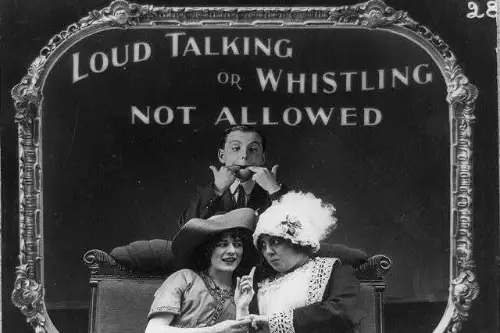
Whistling inside used to be a big no-no, with some believing it could summon evil spirits or financial ruin, according to Vocal Media. In some cases, it was thought that whistling indoors could anger spirits who would retaliate with misfortune. Sailors were especially wary of whistling, fearing it could stir up bad weather or attract ghosts of the sea. These days, unless you’re in a superstitious household, whistling indoors is more likely to annoy someone than bring bad luck.
This belief probably comes from old maritime traditions and European folklore that saw whistling as a form of conjuring. In many cultures, noises were believed to attract supernatural entities, whether good or bad. Over time, as rational thinking replaced superstition, the fear of whistling indoors faded. Now, the only real risk of whistling inside is irritating the people around you.
6. Sweeping Over Someone’s Feet Curses Them
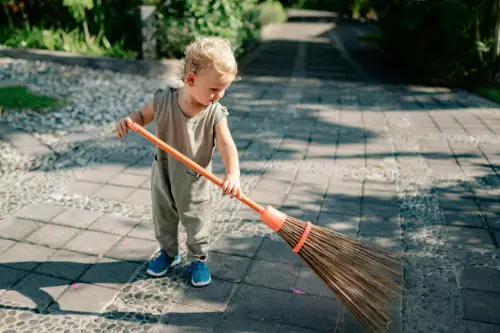
In many American households, especially those with Southern or African American roots, sweeping over someone’s feet was considered bad luck. It was believed that if a broom accidentally brushed over your feet, you’d never get married. Some even thought it could bring a streak of bad luck that would be hard to shake. While some people still avoid it out of habit, the belief has largely disappeared.
The superstition likely comes from older traditions where sweeping was associated with removing bad energy. Since brooms were seen as tools for both physical and spiritual cleansing, it made sense that improper use could bring trouble. As modern life moved away from folk beliefs, this one slowly lost its power. Now, stepping aside for a sweeping broom is more about avoiding dust than dodging bad luck.
7. Knocking on Wood to Prevent Bad Luck
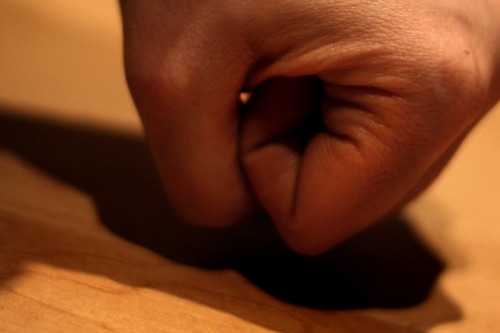
Before it became a casual habit, knocking on wood was a serious way to ward off bad luck. People believed that speaking of good fortune aloud could tempt fate, but knocking on wood would counteract the jinx. Some thought that trees housed protective spirits who could intervene if you tapped them. While people still say “knock on wood,” most do it out of habit rather than true belief.
This superstition likely came from old pagan traditions where trees were seen as sacred. Since many early American settlers came from cultures with strong folk beliefs, this practice stuck around. Over time, the meaning behind it faded, and it became a reflex rather than a genuine protective act. Now, it’s more of a lighthearted tradition than a real attempt to ward off misfortune.
8. Stopping a Rocking Chair Prevents Ghosts

An empty rocking chair moving on its own used to be seen as an open invitation for spirits. If you saw one rocking with no one in it, you were supposed to stop it immediately to prevent ghosts from taking a seat. Some people even believed that letting a rocking chair sway without someone in it could bring death to the household. Today, most people just assume it’s the wind or an uneven floor and don’t give it a second thought.
This belief likely came from old-world superstitions where spirits were thought to attach themselves to objects. Rocking chairs, often found in dimly lit rooms and creaky old houses, probably seemed especially eerie. Over time, as ghost stories became more for entertainment than genuine fear, the superstition faded. Now, an empty rocking chair moving on its own is more likely to be blamed on a draft than the dead.
9. Throwing Salt Over Your Left Shoulder Wards Off Evil

Spilling salt was once considered a terrible omen, but you could supposedly reverse the bad luck by tossing a pinch over your left shoulder. The idea was that this would hit the devil lurking behind you, preventing him from influencing your life. People took this so seriously that some even kept extra salt handy just in case of an accidental spill. These days, most people just clean up the mess rather than worry about supernatural consequences.
This superstition likely comes from ancient times when salt was both valuable and symbolic of purity. Wasting it was seen as disrespectful to the gods or spirits, which is why a counteracting action was needed. As beliefs in personal responsibility replaced fears of demonic interference, the practice faded. Now, if you see someone tossing salt over their shoulder, it’s probably just out of habit or for fun.
10. A Hat on the Bed Brings Bad Luck
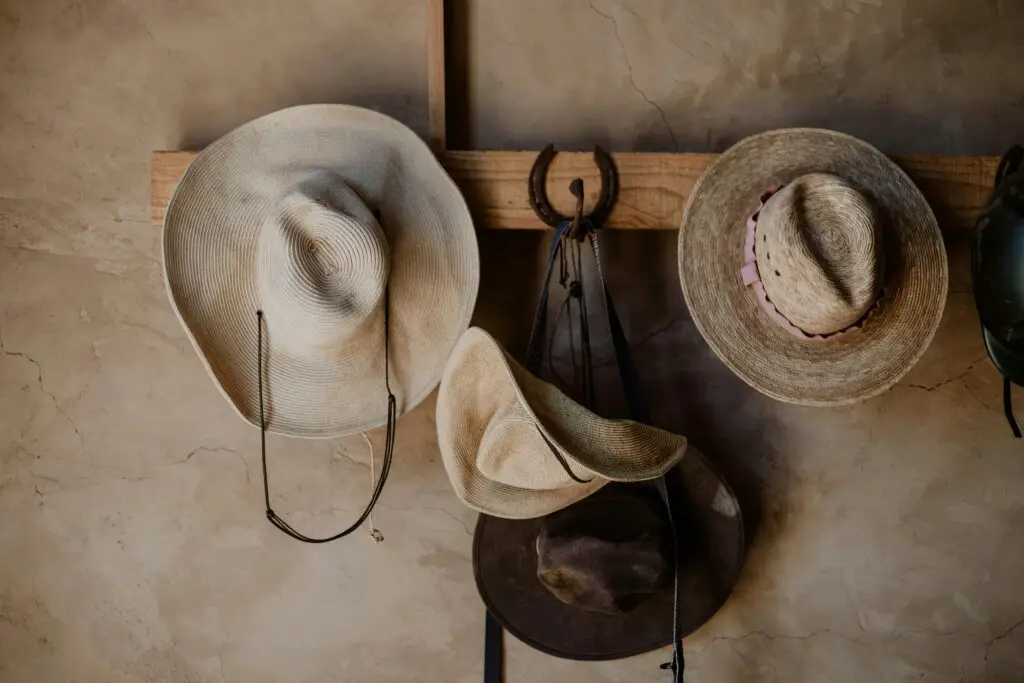
It used to be widely believed that placing a hat on a bed could bring misfortune, illness, or even death. Some thought it attracted bad spirits, while others believed it was connected to old funeral traditions where hats were placed near the deceased. In some circles, cowboys and ranchers were particularly superstitious about this and would never let their hats touch a bed. While some still avoid it out of old habit, most people today don’t think twice about tossing a hat anywhere.
This belief may have originated from the days when hygiene was poor, and lice were a real concern—placing a hat on a bed could easily spread them. The association with death likely came from the fact that sick or dying people often lay in bed, making any object near them part of an ominous scene. Over time, as hygiene improved and funeral customs changed, the superstition lost its grip. Now, a hat on the bed is just another misplaced item, not an omen of doom.
11. Counting Crows to Predict the Future

There was a time when people believed that the number of crows you saw could tell you what was coming. “One for sorrow, two for mirth, three for a wedding, and four for a birth” was a common rhyme used to interpret sightings. Seeing a single crow was considered bad luck, while spotting a group of them could mean something more positive. These days, most people just see crows as regular birds and don’t look to them for fortune-telling.
This superstition likely comes from old English and Scottish folklore, which saw crows as mystical creatures connected to the spirit world. Because crows are scavengers often seen near battlefields and graveyards, they were linked to death and omens. Over time, as science replaced folklore, this belief became more of a fun rhyme than something people took seriously. Now, crows are just another part of nature, not messengers of fate.
12. Picking Up a Penny Only If It’s Heads-Up
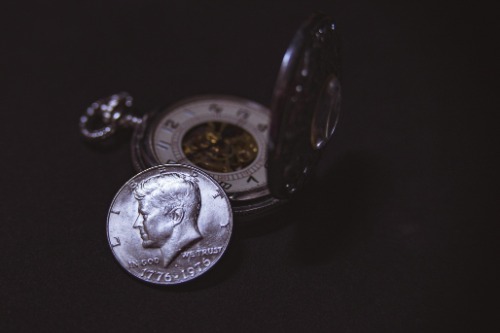
Finding a penny on the ground used to be a big deal, but only if it was heads-up—otherwise, picking it up could bring bad luck. Many people believed that a tails-up penny was cursed or that flipping it over for someone else to find was the only way to remove the bad energy. Some would even leave tails-up pennies alone rather than risk bringing misfortune upon themselves. Today, most people don’t even bother picking up pennies at all, let alone worrying about which side is facing up.
This belief likely comes from an old idea that metal objects, especially coins, could carry spiritual energy. Since heads typically featured a noble figure, it was seen as a symbol of good luck, while tails was considered the lesser side. Over time, as coins lost their value and superstitions faded, fewer people cared about the orientation of found pennies. Now, if someone picks up a penny, it’s usually just for the spare change, not for luck.
13. Dreaming of Fish Means Someone Is Pregnant

It used to be common knowledge that if you dreamed of fish, someone in your family or close circle was expecting a baby. Many people, especially in the South, swore by this belief and would start guessing who the mother-to-be was. Some even said the type of fish in the dream could hint at the gender of the baby. While some older generations still believe in this superstition, most people today chalk up fish dreams to random subconscious thoughts.
The belief likely stems from the connection between water, fertility, and creation in many cultures. Since fish are abundant life forms in water, it wasn’t a huge leap to associate them with pregnancy. Over time, as medical advancements made pregnancy more predictable and less mysterious, the superstition faded. Now, if someone dreams of fish, they’re more likely to blame a seafood dinner than a secret pregnancy.
14. A Dog Howling at Night Means Death Is Near

A howling dog at night used to be seen as a sure sign that death was approaching. Some believed the dog was sensing a spirit, while others thought it was predicting the passing of a sick person nearby. In rural areas, where dogs were more attuned to their surroundings, this superstition was taken especially seriously. Today, most people understand that dogs howl for a variety of reasons, from boredom to hearing high-pitched sounds.
This belief likely comes from ancient cultures that saw dogs as guardians of the spirit world. Because dogs have keen senses and sometimes react to things humans can’t perceive, their nighttime howls felt eerie and significant. Over time, as science explained animal behavior more thoroughly, the fear of a howling dog predicting death faded. Now, a howling dog is more likely to be a neighbor’s annoyance than a warning from the beyond.


